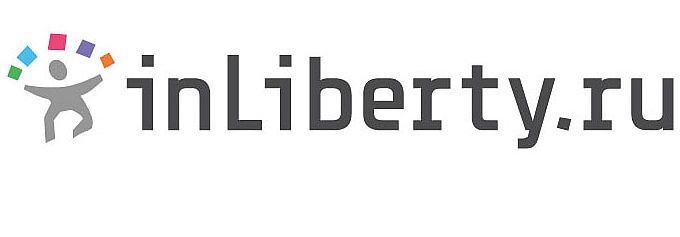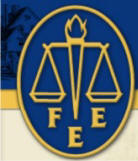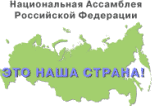|









 Áëîã Àíäðåÿ Èëëàðèîíîâà Áëîã Àíäðåÿ Èëëàðèîíîâà





 








ãîðèçîíòû ïðîìûøëåííîé
ïîëèòèêè
ÈÐÈÑÝÍ
|
ÏÎËÈÒÈ×ÅÑÊÀß ÑÂÎÁÎÄÀ
Russia: Economist Says Political Elite 'Have Their Own Law'
NEW YORK, February 2, 2007 (RFE/RL) -- Andrei Illarionov spent five years as Russian President Vladimir Putin's economic adviser. Since leaving his post at the end of 2005, however, he has become a vocal critic of the Kremlin's political tendencies and human rights record. Illarionov spoke to RFE/RL correspondent Nikola Krastev on January 30.
RFE/RL: You say that the West doesn't understand what's going on in Russia. What's your view? What is going on?
Andrei Illarionov: The emergence of a new political, economic, and ideological regime. In fact, it has already been more or less established. My term for it -- which may not be the most precise term -- is a "corporativist" state. It's where power is concentrated in the hands of corporations whose members hold all the key positions in the political, economic, ideological, informational, financial, and other spheres of life.
The elimination of freedoms leads, among other things, to the elimination of institutions -- the weakening, collapse, and ultimately the destruction of public and state institutions.
These people support each other; they're members of the same organization; they're beyond the reach of law and regulations; and they counterpoise themselves against the rest of society. Their ideology is the so-called "nash-ism" -- separating "us" and "ours" from "them" and "the others." For "us," common laws are not applicable.
Another element of the "corporativist" state and "nash-ism" is the widespread use of force and violence in various forms toward opponents and "the others." This runs from threats of violence to actual acts of violence -- in individual form or as violence on a mass scale. This rule applies to all aspects of life -- political, economic, financial, informational. This is a cult of force. This is a cult of violence preached via official propaganda on every official channel from dusk to dawn.
RFE/RL: You say these people are above common law. Do they have laws for themselves?
Illarionov: They have their own law -- the essence of which is, "if someone touches one of ours -- he will not outlive the day." [Disputes among] themselves they solve in a manner consistent with the practices of other social organizations, including the better-known one located in the southern part of Italy.
RFE/RL: Are there similarities between this new Russian elite and the Soviet-era nomenklatura?
Illarionov: Certainly. Some people already refer to them as "the new nomenklatura." To a certain extent, that's correct, because the members of this nomenklatura are being appointed to the power structures with no regard for traditional, open, and competitive criteria.
The Soviet nomenklatura was more ideological; its key element was loyalty to certain sets of dogmas. Now there is more flexibility on ideology. Now the most important thing is not to be a loyal follower of a certain ideology, but to be loyal to particular personal relationships. You can't become a member of the new nomenklatura just by wanting it, by showing your readiness. The nomenklatura chooses its members itself.
RFE/RL: Do you have any prognosis for the outcome of Russia's parliamentary elections at the end of this year?
Illarionov: To be honest, I have absolutely no interest in following the so-called political campaign and actions of political parties, or the so-called contenders for president [in the March 2008 election]. They're meaningless, because it's all just an imitation campaign, imitation actions which have no relation whatsoever to real life.
If you want to make a prognosis about the distribution of seats in the State Duma after the elections in December 2007, you don't need to analyze the political preferences of Russian citizens. You need to study the latest directives of the presidential administration aimed at the governance of domestic politics.
RFE/RL: Do you see a government hand in the assassination in October of Anna Politkovskaya and the poisoning death the next month of the former FSB officer Aleksandr Litvinenko?
Illarionov: The truth is that political killings can happen in any country, including in democratic, free countries. And not only journalists are being killed; presidents are being assassinated as well. But after such a tragedy takes place, there is a big difference in what authorities do in the aftermath.
It's enough to compare two cases: the murder of the Polish priest Jerzy Popieluszko [in 1984] by agents of the Polish secret services on the one hand; and the poisoning of Mr. Litvinenko in London and the killing of Mrs. Politkovskaya in Moscow on the other.
After Popieluszko's murder it was the [Communist] military junta, the military government of Poland, which made sure the perpetrators were found, brought to court, sentenced, and spent time in jail in accordance with Polish law.
In Russia it's the same thing, but the government is using all the means and resources of the state apparatus, including the Foreign Ministry, the Prosecutor-General's Office, the State Duma, the Defense Ministry, state media, and so on -- all of this has been engaged in order to distract the public and the investigators, and to send them in any direction but the one that leads to the apprehension of the killers.
Even when the names of the killers become known to the public, the power structures will do all they can to ensure they'll never be sentenced. This is the difference between a country that is free and one that is not free.
RFE/RL: You've said the crime rate in Russia doubled between 1998 and 2006. Usually if a state is becoming more oppressive, crime rates fall. Why is it the other way around in Russia?
Illarionov: The elimination of freedoms leads, among other things, to the elimination of institutions -- the weakening, collapse, and ultimately the destruction of public and state institutions. That's why the first victims of the death of freedom in Russia include the state itself, state institutions -- even those that were themselves created to eliminate freedom.
Look at the tax authorities, the judicial system, the Prosecutor-General's Office, and even the secret services themselves. Everything that is happening in the Russian secret services lately is clear evidence of their dismal state compared to functioning secret services in normal countries.
Âåðíóòüñÿ ê ñïèñêó
|

